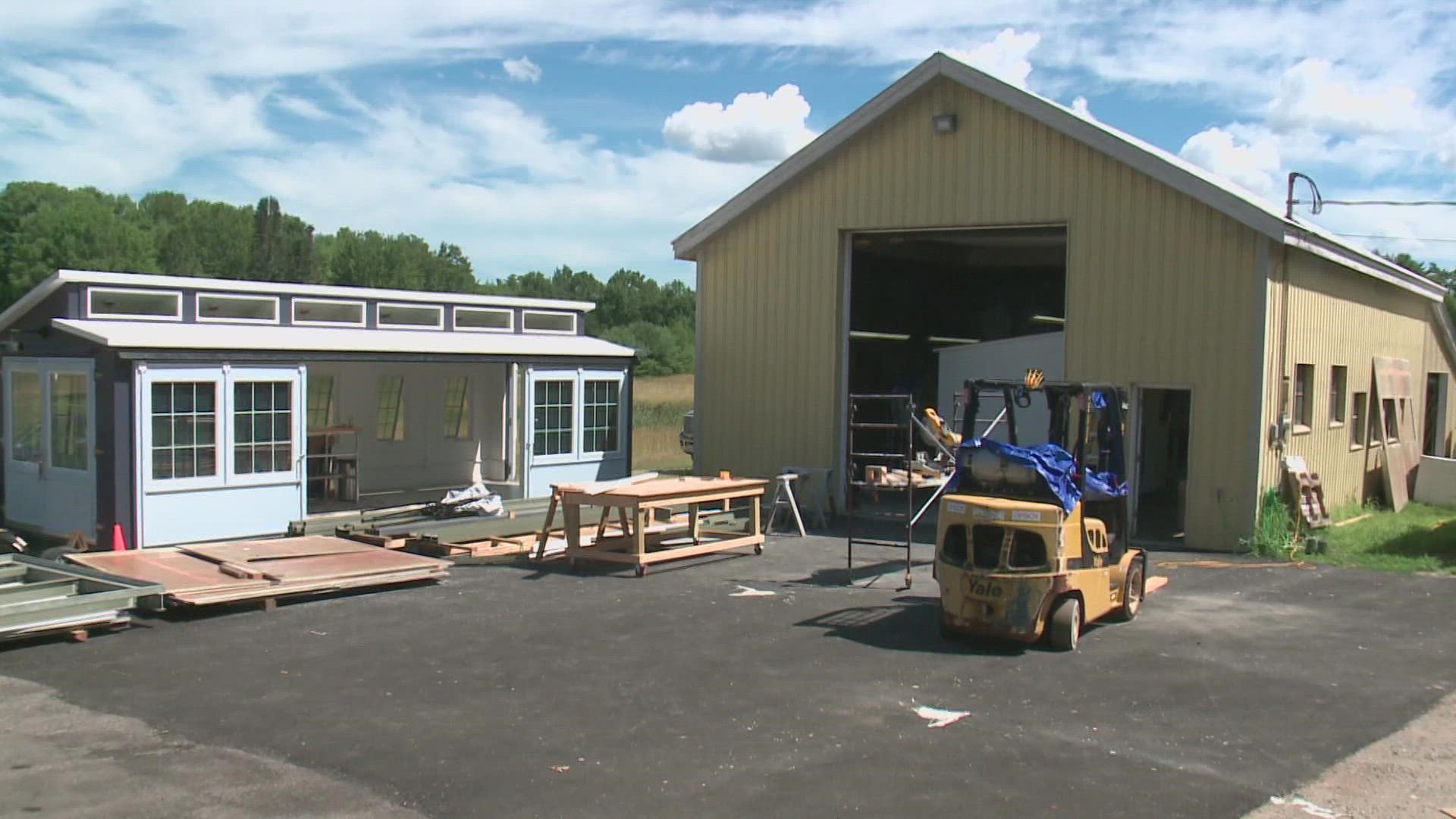NOBLEBORO, Maine — Beside their family’s two barns, Ben and Emily Davis’ business is growing, one box at a time.
One Op Box, to be precise.
Op Box is the name of the start-up business the brother and sister team began about four years ago, transforming steel storage pods into small, pop-up, mobile retail spaces.
Back then they outsourced all the construction work. Today, they have their own team of craftsmen working in the barn to build the units, and others working remotely on marketing, sales, and finance.
“We have close to 40 of them out in the world, between Maine and Austin, Texas,” Ben Davis says.
He says the units have found a niche with other businesses that want a quick and easy way to set up shop, sometimes temporarily.
“Our whole thing is modular infrastructure, so if you have a place you want to deploy infrastructure quickly, that’s what we do.”
Outside the barn, where the crew was building a new unit, finished Op Boxes stood ready to go.
One box with roll-up doors is headed for Chicago to be a sports clothing retail spot at Wrigley Field. An outdoor beer bar, with multiple taps and a heavily insulated keg room, is going to a new business in Portland, along with an elegant pavilion, lined with windows and fitted with large, sliding doors.
Those units, like all the Op Boxes now being built, are not made from steel storage pods. Instead, they are fabricated from rigid panels of mostly recycled plastic. The panels are made in Canada, range from three-quarters of an inch to six-inch thickness, and are self supporting, Davis says, meaning no steel or wood studs or beams are needed.
Davis is enthusiastic about the product, so much so that he is partnering with the Canadian company to start manufacturing the panels in the U.S.
“It never rots, never rusts, is lighter, stronger [than the old steel pods]. It's fantastic,” Davis said.
He also says the cost is less than the original steel pods.
All those factors, and the initial acceptance of the modular units, has Op Box looking at another potential market.
Housing.
Davis says it's early in the process, but he has begun talks with some government entities and others about building affordable housing on similar designs.
“Projects like workforce housing and asylum seeker housing — we hope to make an impact. All they are really, are just larger Op Boxes.”
And while it may seem a leap from portable retail units to fixed housing, he says the materials are already being used for that purpose outside of Maine.
“We’ve built two dozen of them in Canada, up to 2,000 square feet, with our partner JD Composites, who invented the material.”
Davis says he hopes to spend the next six to 12 months working with officials in the U.S. to secure approval for using the recycled plastic panels in home construction. He believes there is a lot of interest in the market, and that more will be shown as more people learn about the products.
For the moment, Op Box—short for Opportunity—is placing more units in and outside Maine. The newest is a collection of eight, united to create a small “retail village” in conjunction with two developers in South Boston.
Op Box was awarded the top prize in this year’s business start-up competition called Greenlight Maine. Davis says they plan to use the $25,000 first prize to help market and develop the Boston project. If it generates more interest, he says, that will encourage others to buy their own units, creating more work for the team in Maine.

